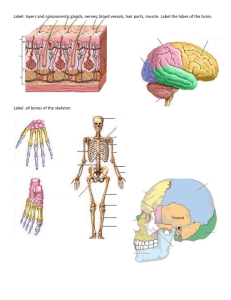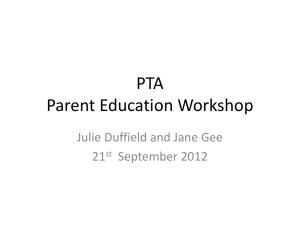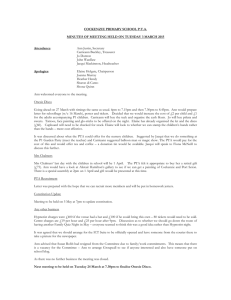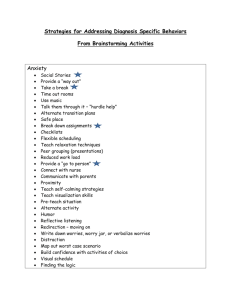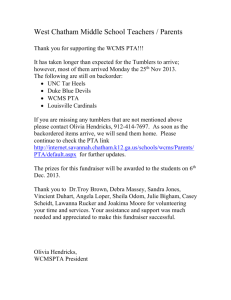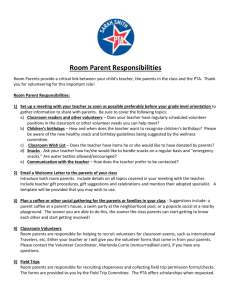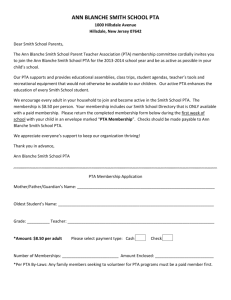Public Speaking and Presentation Skills PPT
advertisement
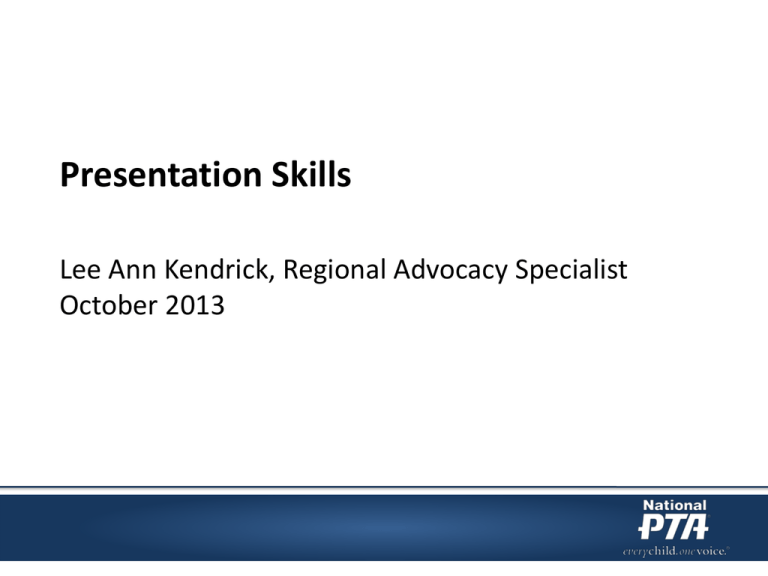
Presentation Skills Lee Ann Kendrick, Regional Advocacy Specialist October 2013 Presentation Skills • Strategies for becoming a better public speaker • Strategies for developing stronger presentations • Strategies for calming nerves Who is afraid of Public Speaking? Top 10 Global Fears Six Strategies You Can Use • • • • • • Planning Practice Engaging your audience Body Language Thinking Positively Calming Nerves Planning • Structure what you want to say – Outlines help! • Strong opening – Attention grabbers – Humor • Closing remarks • Planning helps you think on your feet, especially during unpredictable Q & A • Make it your own! Practice • Practice, practice, practice! – In front of family – PTA meetings – Video yourself • Things to look for – Verbal stalls – Are you smiling? – Gestures – How did you handle interruptions? Engaging your Audience • • • • • • Ask leading questions Encourage your audience to participate Make eye contact Pay attention to how you are speaking Do Not READ to your audience Using a podium Body Language Research has shown that up to 94% of communication is non-verbal. Body Language • • • • Stand up straight Refrain from crossing your arms Standing on one foot Avoid gestures that feel unnatural “ The way you overcome fear and shyness is to become so wrapped up in something that you forget to be afraid” Lady Bird Johnson Calming Nerves • • • • Know your audience Know your material Structure your presentation Calm yourself from the inside Know your Audience • Ask before hand who will be your audience? • What do they already know about your topic? – Are they experts? – Will your information be brand new? • Is there a meeting before/after? What topics will be covered? Tip: Greet people at the door Know Your Material • • • • Read the modules! Do your own research about the topic The audience is looking at you as the “Expert” Do not try to cover everything you know about the topic – Select points that are relevant for this audience Structure your Presentation • Key phrases on index cards or Power point • Avoid Memorizing what you want to say • Create natural breaks within your presentation – Ask a question – Provide an activity Calm yourself from the inside • • • • • Practice deep breathing Drink water Smile Use visualization techniques Speak more slowly than you would in a conversation • Move around during your presentation, this expends nervous energy Remember Nerves are not your enemy and you do not have to fear public speaking! Questions For more information contact: Lee Ann Kendrick, Regional Advocacy Specialist (571)329-9365 lkendrick@pta.org PTA.org

